The article focuses on opportunities and challenges faced by the UK Government when engaging with African nationa on critical minerals issues.
Summary: This submission makes the argument that the UK is well placed to benefit from greater engagement with African producers of critical minerals given the industry concentration in London, skills offer, and soft power. However, the UK should not take existing relationships for granted. The push for critical mineral sourcing should be spearheaded by the UK’s reputation and leadership on environmental, social and governance (ESG) performance. Currently, there is a perception that the UK is imposing environmental constraints on emerging producer countries and not adequately engaging on more complicated social and governance issues. By listening to African perspectives on ESG concerns and engaging in mutually beneficial partnerships, the UK Government’s value proposition will strengthen and gain more traction relative to other nations, in particular China and Russia. The document proceeds as follows: Paragraphs 1 – 4 outline the opportunities that African mineral producers offer to the UK, and the competitive advantage the UK has in these jurisdictions; 5 – 6 provide strategic considerations for UK engagement; 7 – 10 argue for the central importance of international and local partnerships; 11 – 13 emphasise that the UK should be a leader in formulating and supporting environmental, social and governance (ESG) performance and traceability; 14 – 15 gives examples of how UK soft power could support the critical minerals strategy; 16 outlines the Chatham House research and expertise in this field that have informed this submission.
1. The following document is a submission of evidence for the UK foreign affairs committee inquiry into critical minerals. This document focuses on the opportunities and challenges faced by the UK government when engaging specifically with African nations on critical minerals issues – including the diversification of supply chains, responsible sourcing, ESG concerns, and the current context of global engagement in Africa. This submission provides responses to the following questions raised by the inquiry and the call for submission of evidence:
a) What opportunities are there for diversification of the UK’s critical minerals supply chains? How is the FCDO supporting the Government’s efforts to diversify supply of critical minerals?
b) How can the FCDO support the responsible sourcing of the UK’s critical minerals? How can the UK work with global partners to improve environmental, social and governance performance (ESG) across the sector? What are the potential complications/ implications of insisting on traceability in supply chains?
c) Where should the UK’s focus be in developing bilateral relationships for improving our supply chain accessibility and traceability? How can the UK Government help mitigate any adverse impact of “debt-trap diplomacy” and increasing divides between the Global South and Global North?
2. African producers could be crucial for diversifying supply chains of critical minerals. The UK critical mineral strategy identifies 18 elements that the UK considers critical. China is the top producer of 12 of these 18. Two African countries are identified as top producers – DRC for cobalt and tantalum, and South Africa for platinum group metals (PGM). Other African current and emerging producers could present significant opportunity to the UK – either as part of a ‘China plus one’ means of lessening reliance on the top producer, or as part of a wider diversified supply chain. For example, Mozambique and Madagascar were among the top 5 graphite producers in 2021. Commodities trader Trafigura estimates that Africa’s lithium production will increase more than twelvefold by the end of the decade, from current production of 40,000 tonnes per year to 497,000 tonnes in 2030, mostly from Zimbabwe, but also Mali and the DRC. Zimbabwe also has significant PGMs. However, despite this mineral potential, Africa as a continent receives low levels of exploration expenditure compared to global competitors. The UK can more actively support exploration on the continent and should balance its emphasis between existing producers and bringing new deposits online.
3. The UK has a competitive advantage in mining in Africa, but colonial legacies continue to make engagement politically sensitive. London is the global centre for fundraising, listing, trading, dispute resolution, and industry bodies such as the International Council on Metals and Minerals. The London Metals Exchange is the trading and price-formation venue of choice for industrial metals globally. Several UK listed or headquartered mining and trading companies have a presence on the continent, including Anglo American, Acacia Mining, Glencore, and Rio Tinto. However, others have divested from the continent in the face of perceived political risk and labour tensions. The political and cultural legacy of decolonisation, as well as pressures on governments to deliver greater resource benefits to citizens, mean African citizens and leaders have a strong sense of ownership over their natural resources and a suspicion of external actors. These suspicions have recently resurged in public discourse over transfer pricing and tax arrangements. In a context of rising demands from citizens for greater benefit from resource endowments, protectionism and resource nationalism occur in the form of high tax rates, enforced domestic beneficiation, and high local content requirements. For example, in December 2022, the government of Zimbabwe outlawed the export of raw lithium. The UK government must be clear and transparent in its motives for engagement. In particular, it must clearly explain the details of how it intends to access minerals, including how it will work with foreign governments and companies. UK companies already have a range of partnerships with foreign companies and governments, including public private partnerships, joint ventures, and offtake agreements in African countries. The UK must also show a willingness to support local beneficiation and processing. The UK should see African partners as long-term prospects and actively invest in governance institutional capacity building without replacing the role of the state. This will require patient investment and relationship building. The UK should start with strategic uplift in engagement on resource issues in those jurisdictions with strong institutional environments – including respect for the rule of law, property rights, and democratic principles.
4. The UK’s approach to engaging Africa should be cognisant of the varying definitions and understandings of critical and strategic minerals, and especially African national expectations of the energy transition commodities boom. Many international governments and regional bodies have put diplomatic weight behind the securing of critical or strategic minerals – broadly defined by their scarcity or supply risk and economic importance, especially for the global green transition. The US, EU, and UK have each developed a critical minerals strategy which, while similar, have some differences. For example, only the US includes nickel as a critical mineral, while the UK places it on a ‘watchlist’ based on the high level of supply from Russia. For African mineral producing governments, strategic minerals are mostly defined by their potential contribution towards national development as well as national energy security. For South Africa, this includes coal and uranium. The annual appraisal of the UK’s critical mineral list, conducted by the Critical Minerals Intelligence Centre, needs to be transparent, and allow for external submission of evidence, to avoid being seen as geopolitical and thus alienating potential partners. Mining is highly energy intensive. The UK needs to acknowledge that in many critical mineral frontier producers there are low levels of installed electricity generating capacity, and governments are facing international pressure not to develop their accessible fossil fuel reserves. The UK needs to be clear on its position on the use of transition fuels – such as gas – in these developing contexts, as well as invest in green generation to support its access to critical minerals. The UK has expertise and experience on green mining. New projects may offer lessons for replication, including Anglo American’s partnership with EDF in a renewable power company in South Africa, and First Quantum Mineral’s partnership with Total Eren and Chariot Transitional Power on a solar and wind project in Zambia.
5. Accessing the minerals the UK sees as critical will require government engagement at a sectoral level, not just securing supply from operations or relying on traders. Critical minerals tend to be mid-price and mid-volume, rather than the high-price low-volume trade in rubies or diamonds, or the low-price high-volume trade in bulk such as iron ore and coal. This often means that they alone don’t generate resource rents significant enough for reinvestment into public goods to support the industry. However, most African countries producing one or more critical mineral have also diversified mining sectors. For example, while the DRC is the world’s leading source of cobalt, it is also a significant producer of copper, diamonds, and tantalum and has lithium exploration projects. Across the border, Zambia is an emerging nickel and cobalt producer, but its main product is copper. The UK should demonstrate that its interests are in supporting the development of national diversified mining industries, including critical minerals, not simply accessing specific resources. This will require supporting the development of a conducive environment for investment and diversified mining industry. Firstly, through development spending on physical infrastructure and energy. Secondly, by promoting a rules-based market regime. FCDO and DIT support for the UK’s critical mineral strategy should build partnerships at national and intergovernmental level, and not just facilitate access for UK FDI or export from specific operations.
6. The UK must better articulate its diplomatic ‘offer’ of a market rather than state driven approach against perceived Chinese statist competition. China is more important as a processor than as an investing producer to African countries, where western and Japanese firms continue to dominate production volumes. Chinese investment in African mining tends to be state driven, where government and diplomatic engagements have generated contracts for Chinese state-owned entities to conduct activity under often opaque investment treaties. Furthermore, Chinese authorities’ choices show that they favour a regime’s political stability over rule of law. The UK sees itself as supporting market dynamics and economic institutional arrangements – such as the adherence to the rule of law, market economics, judicial independence and transparency – to integrate African producers into competitive global markets and facilitate FDI. However, the UK’s promise of long-term market derived reward for countries that follow its rules often falls flat against instant and opaque financial injections from China. The UK’s offer is further weakened by declining levels of financial assistance through aid and development spending. The UK needs to better position itself as a processor of critical minerals, and demonstrate active support for processing capabilities in African countries – a key demand of mineral producers on the continent. It is also important to note that UK companies have been engaged in partnerships and joint ventures with Chinese companies in Africa, reflecting the importance of China as a processor and end-use market for African commodities. If the UK is to sell the idea that long-term, market-driven growth is better for everyone than short-term rewards, it must support the integration of African economies into global trade systems, increase development spending on infrastructure, and support fledgling industries with long term prospects. UK financial support needs to be more transactional and visible for African countries, and benefits to citizens need to be more tangible and verifiable.
7. International partnerships with key allies and organisations will be vital in securing critical minerals. These must include partners from the Global South to avoid reinforcing perspectives of a bi-polarised world and a ‘with us or against us’ approach. Critical minerals strategies are overtly geopolitical as Western nations seek to diminish reliance on China, and mitigate the threat posed to energy markets by the Russian invasion of Ukraine. However, most African nations have preferred to adopt a position of non-alignment or positive neutrality on global geopolitics. They see their interests as being best served by being able to do business with all sides, rather than pinning themselves to the ‘east’ or to the ‘west’. Working with traditional partners will be important, including Australia and Canada, whose mining codes are seen as a gold standard on the continent and whose respective junior mining players could be frontrunners for concrete partnerships for smaller deposits. The USA will remain an important partner across a range of economic and security issues. But the UK should also work more with market orientated countries from the Global South, such as Argentina, Brazil, India, Indonesia, and the Republic of Korea, who are also looking for market entry for their firms, as well as needing to secure mineral supply chains. FCDO can support this through, for example, the establishment and coordination of investor committees, and encouraging greater cooperation between different states’ chambers of commerce. Regional economic communities (RECs) such as the Southern African Development Community (SADC) are also important partners to engage. The UK needs to acknowledge RECs own policies in this area, such as the SADC mining protocol, which are subsidiary to the Africa Mining Vision (AMV) of the African Union, the primary codification of continentally defined sustainable development objectives.
8. In June 2022 the USA announced a new Minerals Security Partnership for the security of critical mineral supply chains and promotion of a responsible and environmentally conscious industry.[1] The UK is one of the 11 members of the partnership alongside Australia, Canada, Finland, France, Germany, Japan, the Republic of Korea, Sweden, and the European Commission. In February 2023, on the side of the Investing in African Mining Indaba in Cape Town, South Africa, MSP members met with representatives from Angola, Botswana, the Democratic Republic of the Congo, South Africa, Tanzania, Uganda, and Zambia to discuss and announce support for a shared commitment to high environmental, social, and governance (ESG) standards. In January 2023, the Initiative for Responsible Mining Assurance (IRMA) submitted to the MSP that it could become the appropriate standard for achieving ESG performance. The UK critical mineral strategy acknowledges the IRMA as a recognized framework for responsible mining, and the UK should consider promoting this to other members and UK companies.
9. Entering into and supporting local partnerships is important for building trust and demonstrating UK support for countries’ own national development plans. In November 2022 the UK and South Africa entered into a working partnership on minerals for future clean energy technologies and the energy transition. The partnership will promote responsible exploration, development, production, and processing of minerals in South Africa. The relationship will be deepened through collaboration, including regular Ministerial and Technical dialogues between the Department for Mineral Resources and Energy (SA) and the Department for Business, Energy and Industrial Strategy (UK). The UK has an existing formal UK South Africa Bilateral Forum, and South Africa was the first country to receive a Just Energy Transition Partnership (JET-P) launched in Glasgow at COP26 and towards which the UK is a financial contributor. Eight further partnerships across sectors, including science and technology, were launched at the State Visit of President Cyril Ramaphosa to the UK in November 2022. These working partnerships are particularly important against the backdrop of South Africa’s positioning on the war in Ukraine. Further relationships should be invested in, including with the Minerals Council of South Africa and MINTEK – South Africa’s leading industry research organisation – with their respective counterparts in the UK, especially on vital but sensitive issues such as the future of coal. The UK could also emulate the USA in supporting bilateral partnerships between African nations for developing value chains. For example, in April 2022, Zambia signed a memorandum of understanding (MoU) with the DRC to facilitate the development of value chains in the electric battery and clean energy sector. The MoU reflects the desire of both governments to capitalize on their endowments of minerals that are required for developing batteries. The initiative was given further support through the signing of an additional MoU between the two countries and the US on the side-lines of the US-Africa Leaders Summit, as part of the US’s own critical mineral strategy. This is a key example of a triangulated partnership.
10. FCDO, DIT, BII and UK agencies have a role to play in supporting both value addition and local supply chains in support of the ‘mining as a fly-wheel for development’ model. The extraction of critical minerals tends to be in comparatively small operations, and in limited volume. And mining is becoming an increasingly automated and digitised process. Which means that fewer direct employment opportunities are created and there is pressure on companies to demonstrate value in other ways. African countries have aspirations for vertical diversification through local processing and beneficiation. UK companies have provided important examples of success in this area including De Beers, who in 2013 moved their rough diamond sales as well as some cutting and polishing processes to Gaborone, Botswana. Another important area of employment creation is in local value chains for consumable goods, wearable parts, and provision of services to sites. UK companies are already involved in local business development through the provision of electricity to communities and working in partnership with development consultancies and specialists on local entrepreneurial opportunities. FCDO missions in Africa host technical development expertise which can offer direct and indirect support, such as through multilateral development agencies such as the World Bank, to small and medium-sized enterprises around mining industries. Chambers of Commerce can be important interlocutors to connect business to wider markets, to diversify their client base and maintain their success beyond the life of mine.
11. The UK has been a leader in the creation and promotion of ‘soft law’ governance, which it should continue to pursue through stronger partnerships with the Global South. The UK has been a leader in the development of voluntary initiatives, institutions, organisations, and principles that, since the late 1990s, have constituted the ‘soft law’ governance of the extractive industries globally. These include the Sullivan Principles, Extractive Industries Transparency Initiative (EITI), the Equator Principles, the Global Compact, the IFC Performance Standards, the Kimberly Process (KP), the Voluntary Principles on Security and Human Rights (VPs), and the UN Guiding Principles on Business and Human Rights. There are notable limitations to the effectiveness of voluntary initiatives, especially where they contest with state sovereignty and the challenges of projecting compliance from one jurisdiction to another. Furthermore, they have been the subject of criticism in some African countries where they are viewed as being dominated by powers from the Global North. However, they can play a critical role in promoting transparency, inclusion, and traceability in supply chains. The UK has continued to be an advocate for their uptake among Africa countries, supporting for example an initiative to support the Government of Mozambique to become a signatory of the VP Initiative. It should continue to work with partners from the Global South to expand these initiatives and networks. The UK should work with partners to communicate how soft law initiatives can help countries comply with hard law requirements such as the EU Conflict Minerals Regulation (2021), the Dodd Frank Act (2010), and UK Bribery Act (2010).
12. Traceability should be a core principle of the UK’s critical mineral strategy globally. This is essential in Africa where mineral endowments have too often been associated with conflict. In 2021 the UK became an independent member of the Kimberly Process Certification Scheme to prevent diamond sales funding non-state armed groups. The UK was formerly a participant through the EU which was a founding member. As an independent member the UK could now bid to chair the process, which would be an indication of its commitment to traceability in supply chains. Although the process has received criticism for not being mandated to tackle state-led human rights abuse and conflict – an issue which has come to the fore regarding Russian diamond sales after the invasion of Ukraine – it has become a model for other processes. De Beers diamonds have developed a blockchain based provenance programme called TRACR to allow alluvial gemstones to legitimately enter global markets. INTEL have developed traceability programmes, including for cobalt, which also offer opportunities for learning. Provenance of ores and minerals is more complicated to guarantee than gemstones, but traceability programmes are vital to meet consumer demands and pressures for conflict free products.
13. ESG criteria should be seen as a means of positively distinguishing UK operations and not viewed as a ‘competitive disadvantage’. While there is an inconsistency in the definition of ESG standards, and reports of greenwashing, these criteria are vital for securing a social licence to operate. These initiatives hold a commercial value in mitigating community risk that can be a result of company bad practice. Security exchange listing rules will increasingly require strong ESG performance as a primary criterion by which to access global capital. Western companies and governments see themselves as leaders in this space, but others are increasingly adopting ESG practices as part of good business models, including some Chinese mines in Zambia. The increasing importance of these criteria requires a deeper appreciation of socio-cultural dynamics and strategies that recognize local environmental factors. Having a diversity of voices involved in decision-making is an important step towards achieving this. Civil society organisations in Africa have already noted concerns of corruption risks emanating from the demand for critical minerals, particularly given the speed at which the market is expected to rise and the number of new actors involved, including those not traditionally engaged with mining. Inter-parliamentary initiatives that increase knowledge and awareness of ESG values, standards, and best practice among legislators could be a very practical way of improving governance. There is a need to ensure that the global green transition does not come at the detriment of African communities, who will bear the brunt of an inherently environmentally damaging industry. The UK should recognise that its drive for critical minerals is interpreted in Africa and elsewhere as overtly political and rooted in the green transition in which many African states feel their voices are not heard, and who are among the lowest emitters but worst affected by climate change. As the UK engages on critical minerals, it should also support alternative green financing initiatives in Africa, including carbon markets, and support research and technical skills development in this area. The UK is well placed to be a leader on formulating and supporting a more cohesive and harmonised ESG standard.
14. The UK has a strong reputation for knowledge industries, including education, analysis and media. The Integrated Review emphasised this as a key area of UK soft power. Heightened support for education and knowledge creation, university partnerships, and development of relations between UK and African Schools of Mines should be considered. This is one of the UK’s strongest value propositions given the strong academic and research institutional brands. Partnerships with African institutions in Africa and in the UK can help with development of skills but also improve public sentiments. The UK should also support nationally owned geological surveys and centralised and public storage of geological information, as well as technical assistance on creating and adopting transparent cadastre systems to manage exploration and mining rights allocations to prevent corruption. The British Geological Survey is well placed to design a programme in this regard. The UK has several scholarship schemes including the Newton International Fellowships in STEM subjects, and the Chevening scheme. FCDO missions in Africa have supported research. For example, the High Commission in Lusaka has supported conferences, events, and facilitated a working group of researchers working on key mining issues.
15. The UK has identified 10 key countries of interest in Africa. The placement of critical mineral hubs within these could support the implementation of the critical minerals strategy. This should extend beyond individual diplomats tasked with the issue. The development of a network of hubs could provide strategically placed regional contact points for support across a range of sector matters and business support, in Botswana, Côte d’Ivoire, Ghana, Madagascar, South Africa, and Zambia.
16. Chatham House Africa Programme background on mining governance in Africa: The Africa Programme is a world-leading centre for independent policy research with a global reputation for influential and reliable analysis on issues in Africa including sustainable and equitable resource governance. The material shared in this submission builds on work undertaken by the Programme including: events on supply chain regulatory initiatives, beneficiation, and anti-money laundering; a conference in Botswana on the connection between natural resources and society, and discussions on mining and human rights in Eritrea and Zimbabwe and on mining and national development in Guinea. The programme hosted a conference in Lusaka in 2022 on Zambia’s regional and international relations, including a session on strategic minerals. The programme has hosted mining ministers from across the African continent for events and conferences. Programme staff have been involved in industry initiatives including the VPs and KP. This submission also benefited from inputs and comments from industry practitioners from mining companies, law firms and sector advisors, as well as academics and civil society leaders in Cape Town, Gaborone, Harare, Johannesburg, London, and Lusaka. More information on the Chatham House Africa Programme’s work on resource governance can be found on our website here.
Written evidence submitted by Africa Programme, Chatham House (MIN0033). To read the full article, please click the button below.
1. The following document is a submission of evidence for the UK foreign affairs committee inquiry into critical minerals. This document focuses on the opportunities and challenges faced by the UK government when engaging specifically with African nations on critical minerals issues – including the diversification of supply chains, responsible sourcing, ESG concerns, and the current context of global engagement in Africa. This submission provides responses to the following questions raised by the inquiry and the call for submission of evidence:
a) What opportunities are there for diversification of the UK’s critical minerals supply chains? How is the FCDO supporting the Government’s efforts to diversify supply of critical minerals?
b) How can the FCDO support the responsible sourcing of the UK’s critical minerals? How can the UK work with global partners to improve environmental, social and governance performance (ESG) across the sector? What are the potential complications/ implications of insisting on traceability in supply chains?
c) Where should the UK’s focus be in developing bilateral relationships for improving our supply chain accessibility and traceability? How can the UK Government help mitigate any adverse impact of “debt-trap diplomacy” and increasing divides between the Global South and Global North?
2. African producers could be crucial for diversifying supply chains of critical minerals. The UK critical mineral strategy identifies 18 elements that the UK considers critical. China is the top producer of 12 of these 18. Two African countries are identified as top producers – DRC for cobalt and tantalum, and South Africa for platinum group metals (PGM). Other African current and emerging producers could present significant opportunity to the UK – either as part of a ‘China plus one’ means of lessening reliance on the top producer, or as part of a wider diversified supply chain. For example, Mozambique and Madagascar were among the top 5 graphite producers in 2021. Commodities trader Trafigura estimates that Africa’s lithium production will increase more than twelvefold by the end of the decade, from current production of 40,000 tonnes per year to 497,000 tonnes in 2030, mostly from Zimbabwe, but also Mali and the DRC. Zimbabwe also has significant PGMs. However, despite this mineral potential, Africa as a continent receives low levels of exploration expenditure compared to global competitors. The UK can more actively support exploration on the continent and should balance its emphasis between existing producers and bringing new deposits online.
3. The UK has a competitive advantage in mining in Africa, but colonial legacies continue to make engagement politically sensitive. London is the global centre for fundraising, listing, trading, dispute resolution, and industry bodies such as the International Council on Metals and Minerals. The London Metals Exchange is the trading and price-formation venue of choice for industrial metals globally. Several UK listed or headquartered mining and trading companies have a presence on the continent, including Anglo American, Acacia Mining, Glencore, and Rio Tinto. However, others have divested from the continent in the face of perceived political risk and labour tensions. The political and cultural legacy of decolonisation, as well as pressures on governments to deliver greater resource benefits to citizens, mean African citizens and leaders have a strong sense of ownership over their natural resources and a suspicion of external actors. These suspicions have recently resurged in public discourse over transfer pricing and tax arrangements. In a context of rising demands from citizens for greater benefit from resource endowments, protectionism and resource nationalism occur in the form of high tax rates, enforced domestic beneficiation, and high local content requirements. For example, in December 2022, the government of Zimbabwe outlawed the export of raw lithium. The UK government must be clear and transparent in its motives for engagement. In particular, it must clearly explain the details of how it intends to access minerals, including how it will work with foreign governments and companies. UK companies already have a range of partnerships with foreign companies and governments, including public private partnerships, joint ventures, and offtake agreements in African countries. The UK must also show a willingness to support local beneficiation and processing. The UK should see African partners as long-term prospects and actively invest in governance institutional capacity building without replacing the role of the state. This will require patient investment and relationship building. The UK should start with strategic uplift in engagement on resource issues in those jurisdictions with strong institutional environments – including respect for the rule of law, property rights, and democratic principles.
4. The UK’s approach to engaging Africa should be cognisant of the varying definitions and understandings of critical and strategic minerals, and especially African national expectations of the energy transition commodities boom. Many international governments and regional bodies have put diplomatic weight behind the securing of critical or strategic minerals – broadly defined by their scarcity or supply risk and economic importance, especially for the global green transition. The US, EU, and UK have each developed a critical minerals strategy which, while similar, have some differences. For example, only the US includes nickel as a critical mineral, while the UK places it on a ‘watchlist’ based on the high level of supply from Russia. For African mineral producing governments, strategic minerals are mostly defined by their potential contribution towards national development as well as national energy security. For South Africa, this includes coal and uranium. The annual appraisal of the UK’s critical mineral list, conducted by the Critical Minerals Intelligence Centre, needs to be transparent, and allow for external submission of evidence, to avoid being seen as geopolitical and thus alienating potential partners. Mining is highly energy intensive. The UK needs to acknowledge that in many critical mineral frontier producers there are low levels of installed electricity generating capacity, and governments are facing international pressure not to develop their accessible fossil fuel reserves. The UK needs to be clear on its position on the use of transition fuels – such as gas – in these developing contexts, as well as invest in green generation to support its access to critical minerals. The UK has expertise and experience on green mining. New projects may offer lessons for replication, including Anglo American’s partnership with EDF in a renewable power company in South Africa, and First Quantum Mineral’s partnership with Total Eren and Chariot Transitional Power on a solar and wind project in Zambia.
5. Accessing the minerals the UK sees as critical will require government engagement at a sectoral level, not just securing supply from operations or relying on traders. Critical minerals tend to be mid-price and mid-volume, rather than the high-price low-volume trade in rubies or diamonds, or the low-price high-volume trade in bulk such as iron ore and coal. This often means that they alone don’t generate resource rents significant enough for reinvestment into public goods to support the industry. However, most African countries producing one or more critical mineral have also diversified mining sectors. For example, while the DRC is the world’s leading source of cobalt, it is also a significant producer of copper, diamonds, and tantalum and has lithium exploration projects. Across the border, Zambia is an emerging nickel and cobalt producer, but its main product is copper. The UK should demonstrate that its interests are in supporting the development of national diversified mining industries, including critical minerals, not simply accessing specific resources. This will require supporting the development of a conducive environment for investment and diversified mining industry. Firstly, through development spending on physical infrastructure and energy. Secondly, by promoting a rules-based market regime. FCDO and DIT support for the UK’s critical mineral strategy should build partnerships at national and intergovernmental level, and not just facilitate access for UK FDI or export from specific operations.
6. The UK must better articulate its diplomatic ‘offer’ of a market rather than state driven approach against perceived Chinese statist competition. China is more important as a processor than as an investing producer to African countries, where western and Japanese firms continue to dominate production volumes. Chinese investment in African mining tends to be state driven, where government and diplomatic engagements have generated contracts for Chinese state-owned entities to conduct activity under often opaque investment treaties. Furthermore, Chinese authorities’ choices show that they favour a regime’s political stability over rule of law. The UK sees itself as supporting market dynamics and economic institutional arrangements – such as the adherence to the rule of law, market economics, judicial independence and transparency – to integrate African producers into competitive global markets and facilitate FDI. However, the UK’s promise of long-term market derived reward for countries that follow its rules often falls flat against instant and opaque financial injections from China. The UK’s offer is further weakened by declining levels of financial assistance through aid and development spending. The UK needs to better position itself as a processor of critical minerals, and demonstrate active support for processing capabilities in African countries – a key demand of mineral producers on the continent. It is also important to note that UK companies have been engaged in partnerships and joint ventures with Chinese companies in Africa, reflecting the importance of China as a processor and end-use market for African commodities. If the UK is to sell the idea that long-term, market-driven growth is better for everyone than short-term rewards, it must support the integration of African economies into global trade systems, increase development spending on infrastructure, and support fledgling industries with long term prospects. UK financial support needs to be more transactional and visible for African countries, and benefits to citizens need to be more tangible and verifiable.
7. International partnerships with key allies and organisations will be vital in securing critical minerals. These must include partners from the Global South to avoid reinforcing perspectives of a bi-polarised world and a ‘with us or against us’ approach. Critical minerals strategies are overtly geopolitical as Western nations seek to diminish reliance on China, and mitigate the threat posed to energy markets by the Russian invasion of Ukraine. However, most African nations have preferred to adopt a position of non-alignment or positive neutrality on global geopolitics. They see their interests as being best served by being able to do business with all sides, rather than pinning themselves to the ‘east’ or to the ‘west’. Working with traditional partners will be important, including Australia and Canada, whose mining codes are seen as a gold standard on the continent and whose respective junior mining players could be frontrunners for concrete partnerships for smaller deposits. The USA will remain an important partner across a range of economic and security issues. But the UK should also work more with market orientated countries from the Global South, such as Argentina, Brazil, India, Indonesia, and the Republic of Korea, who are also looking for market entry for their firms, as well as needing to secure mineral supply chains. FCDO can support this through, for example, the establishment and coordination of investor committees, and encouraging greater cooperation between different states’ chambers of commerce. Regional economic communities (RECs) such as the Southern African Development Community (SADC) are also important partners to engage. The UK needs to acknowledge RECs own policies in this area, such as the SADC mining protocol, which are subsidiary to the Africa Mining Vision (AMV) of the African Union, the primary codification of continentally defined sustainable development objectives.
8. In June 2022 the USA announced a new Minerals Security Partnership for the security of critical mineral supply chains and promotion of a responsible and environmentally conscious industry.[1] The UK is one of the 11 members of the partnership alongside Australia, Canada, Finland, France, Germany, Japan, the Republic of Korea, Sweden, and the European Commission. In February 2023, on the side of the Investing in African Mining Indaba in Cape Town, South Africa, MSP members met with representatives from Angola, Botswana, the Democratic Republic of the Congo, South Africa, Tanzania, Uganda, and Zambia to discuss and announce support for a shared commitment to high environmental, social, and governance (ESG) standards. In January 2023, the Initiative for Responsible Mining Assurance (IRMA) submitted to the MSP that it could become the appropriate standard for achieving ESG performance. The UK critical mineral strategy acknowledges the IRMA as a recognized framework for responsible mining, and the UK should consider promoting this to other members and UK companies.
9. Entering into and supporting local partnerships is important for building trust and demonstrating UK support for countries’ own national development plans. In November 2022 the UK and South Africa entered into a working partnership on minerals for future clean energy technologies and the energy transition. The partnership will promote responsible exploration, development, production, and processing of minerals in South Africa. The relationship will be deepened through collaboration, including regular Ministerial and Technical dialogues between the Department for Mineral Resources and Energy (SA) and the Department for Business, Energy and Industrial Strategy (UK). The UK has an existing formal UK South Africa Bilateral Forum, and South Africa was the first country to receive a Just Energy Transition Partnership (JET-P) launched in Glasgow at COP26 and towards which the UK is a financial contributor. Eight further partnerships across sectors, including science and technology, were launched at the State Visit of President Cyril Ramaphosa to the UK in November 2022. These working partnerships are particularly important against the backdrop of South Africa’s positioning on the war in Ukraine. Further relationships should be invested in, including with the Minerals Council of South Africa and MINTEK – South Africa’s leading industry research organisation – with their respective counterparts in the UK, especially on vital but sensitive issues such as the future of coal. The UK could also emulate the USA in supporting bilateral partnerships between African nations for developing value chains. For example, in April 2022, Zambia signed a memorandum of understanding (MoU) with the DRC to facilitate the development of value chains in the electric battery and clean energy sector. The MoU reflects the desire of both governments to capitalize on their endowments of minerals that are required for developing batteries. The initiative was given further support through the signing of an additional MoU between the two countries and the US on the side-lines of the US-Africa Leaders Summit, as part of the US’s own critical mineral strategy. This is a key example of a triangulated partnership.
10. FCDO, DIT, BII and UK agencies have a role to play in supporting both value addition and local supply chains in support of the ‘mining as a fly-wheel for development’ model. The extraction of critical minerals tends to be in comparatively small operations, and in limited volume. And mining is becoming an increasingly automated and digitised process. Which means that fewer direct employment opportunities are created and there is pressure on companies to demonstrate value in other ways. African countries have aspirations for vertical diversification through local processing and beneficiation. UK companies have provided important examples of success in this area including De Beers, who in 2013 moved their rough diamond sales as well as some cutting and polishing processes to Gaborone, Botswana. Another important area of employment creation is in local value chains for consumable goods, wearable parts, and provision of services to sites. UK companies are already involved in local business development through the provision of electricity to communities and working in partnership with development consultancies and specialists on local entrepreneurial opportunities. FCDO missions in Africa host technical development expertise which can offer direct and indirect support, such as through multilateral development agencies such as the World Bank, to small and medium-sized enterprises around mining industries. Chambers of Commerce can be important interlocutors to connect business to wider markets, to diversify their client base and maintain their success beyond the life of mine.
11. The UK has been a leader in the creation and promotion of ‘soft law’ governance, which it should continue to pursue through stronger partnerships with the Global South. The UK has been a leader in the development of voluntary initiatives, institutions, organisations, and principles that, since the late 1990s, have constituted the ‘soft law’ governance of the extractive industries globally. These include the Sullivan Principles, Extractive Industries Transparency Initiative (EITI), the Equator Principles, the Global Compact, the IFC Performance Standards, the Kimberly Process (KP), the Voluntary Principles on Security and Human Rights (VPs), and the UN Guiding Principles on Business and Human Rights. There are notable limitations to the effectiveness of voluntary initiatives, especially where they contest with state sovereignty and the challenges of projecting compliance from one jurisdiction to another. Furthermore, they have been the subject of criticism in some African countries where they are viewed as being dominated by powers from the Global North. However, they can play a critical role in promoting transparency, inclusion, and traceability in supply chains. The UK has continued to be an advocate for their uptake among Africa countries, supporting for example an initiative to support the Government of Mozambique to become a signatory of the VP Initiative. It should continue to work with partners from the Global South to expand these initiatives and networks. The UK should work with partners to communicate how soft law initiatives can help countries comply with hard law requirements such as the EU Conflict Minerals Regulation (2021), the Dodd Frank Act (2010), and UK Bribery Act (2010).
12. Traceability should be a core principle of the UK’s critical mineral strategy globally. This is essential in Africa where mineral endowments have too often been associated with conflict. In 2021 the UK became an independent member of the Kimberly Process Certification Scheme to prevent diamond sales funding non-state armed groups. The UK was formerly a participant through the EU which was a founding member. As an independent member the UK could now bid to chair the process, which would be an indication of its commitment to traceability in supply chains. Although the process has received criticism for not being mandated to tackle state-led human rights abuse and conflict – an issue which has come to the fore regarding Russian diamond sales after the invasion of Ukraine – it has become a model for other processes. De Beers diamonds have developed a blockchain based provenance programme called TRACR to allow alluvial gemstones to legitimately enter global markets. INTEL have developed traceability programmes, including for cobalt, which also offer opportunities for learning. Provenance of ores and minerals is more complicated to guarantee than gemstones, but traceability programmes are vital to meet consumer demands and pressures for conflict free products.
13. ESG criteria should be seen as a means of positively distinguishing UK operations and not viewed as a ‘competitive disadvantage’. While there is an inconsistency in the definition of ESG standards, and reports of greenwashing, these criteria are vital for securing a social licence to operate. These initiatives hold a commercial value in mitigating community risk that can be a result of company bad practice. Security exchange listing rules will increasingly require strong ESG performance as a primary criterion by which to access global capital. Western companies and governments see themselves as leaders in this space, but others are increasingly adopting ESG practices as part of good business models, including some Chinese mines in Zambia. The increasing importance of these criteria requires a deeper appreciation of socio-cultural dynamics and strategies that recognize local environmental factors. Having a diversity of voices involved in decision-making is an important step towards achieving this. Civil society organisations in Africa have already noted concerns of corruption risks emanating from the demand for critical minerals, particularly given the speed at which the market is expected to rise and the number of new actors involved, including those not traditionally engaged with mining. Inter-parliamentary initiatives that increase knowledge and awareness of ESG values, standards, and best practice among legislators could be a very practical way of improving governance. There is a need to ensure that the global green transition does not come at the detriment of African communities, who will bear the brunt of an inherently environmentally damaging industry. The UK should recognise that its drive for critical minerals is interpreted in Africa and elsewhere as overtly political and rooted in the green transition in which many African states feel their voices are not heard, and who are among the lowest emitters but worst affected by climate change. As the UK engages on critical minerals, it should also support alternative green financing initiatives in Africa, including carbon markets, and support research and technical skills development in this area. The UK is well placed to be a leader on formulating and supporting a more cohesive and harmonised ESG standard.
14. The UK has a strong reputation for knowledge industries, including education, analysis and media. The Integrated Review emphasised this as a key area of UK soft power. Heightened support for education and knowledge creation, university partnerships, and development of relations between UK and African Schools of Mines should be considered. This is one of the UK’s strongest value propositions given the strong academic and research institutional brands. Partnerships with African institutions in Africa and in the UK can help with development of skills but also improve public sentiments. The UK should also support nationally owned geological surveys and centralised and public storage of geological information, as well as technical assistance on creating and adopting transparent cadastre systems to manage exploration and mining rights allocations to prevent corruption. The British Geological Survey is well placed to design a programme in this regard. The UK has several scholarship schemes including the Newton International Fellowships in STEM subjects, and the Chevening scheme. FCDO missions in Africa have supported research. For example, the High Commission in Lusaka has supported conferences, events, and facilitated a working group of researchers working on key mining issues.
15. The UK has identified 10 key countries of interest in Africa. The placement of critical mineral hubs within these could support the implementation of the critical minerals strategy. This should extend beyond individual diplomats tasked with the issue. The development of a network of hubs could provide strategically placed regional contact points for support across a range of sector matters and business support, in Botswana, Côte d’Ivoire, Ghana, Madagascar, South Africa, and Zambia.
16. Chatham House Africa Programme background on mining governance in Africa: The Africa Programme is a world-leading centre for independent policy research with a global reputation for influential and reliable analysis on issues in Africa including sustainable and equitable resource governance. The material shared in this submission builds on work undertaken by the Programme including: events on supply chain regulatory initiatives, beneficiation, and anti-money laundering; a conference in Botswana on the connection between natural resources and society, and discussions on mining and human rights in Eritrea and Zimbabwe and on mining and national development in Guinea. The programme hosted a conference in Lusaka in 2022 on Zambia’s regional and international relations, including a session on strategic minerals. The programme has hosted mining ministers from across the African continent for events and conferences. Programme staff have been involved in industry initiatives including the VPs and KP. This submission also benefited from inputs and comments from industry practitioners from mining companies, law firms and sector advisors, as well as academics and civil society leaders in Cape Town, Gaborone, Harare, Johannesburg, London, and Lusaka. More information on the Chatham House Africa Programme’s work on resource governance can be found on our website here.
Written evidence submitted by Africa Programme, Chatham House (MIN0033). To read the full article, please click the button below.



.jpg?ext=.jpg)

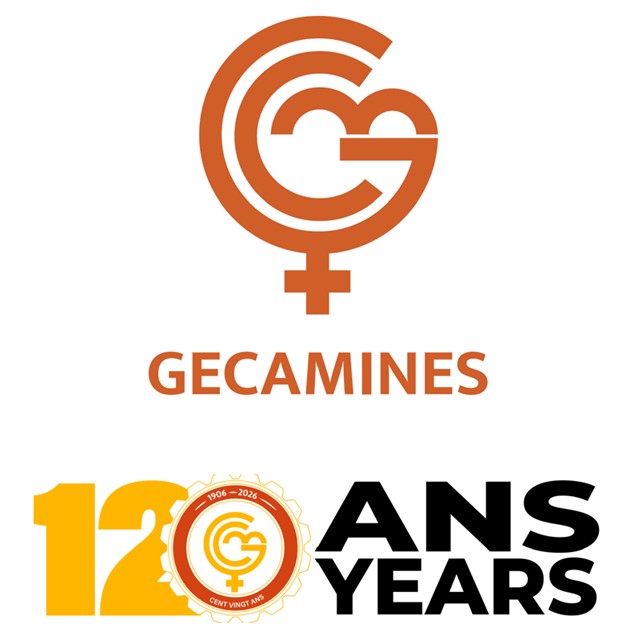
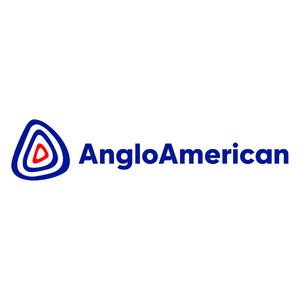

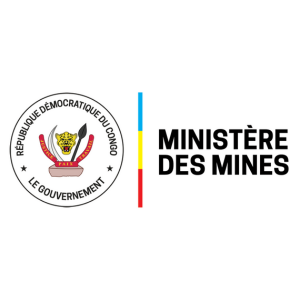
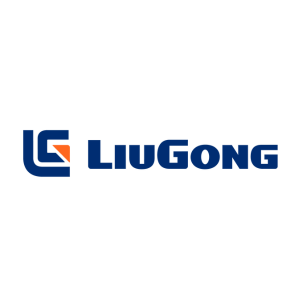
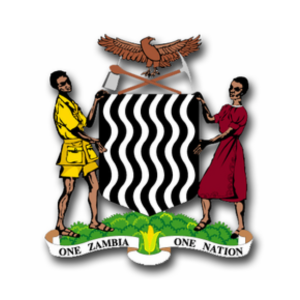

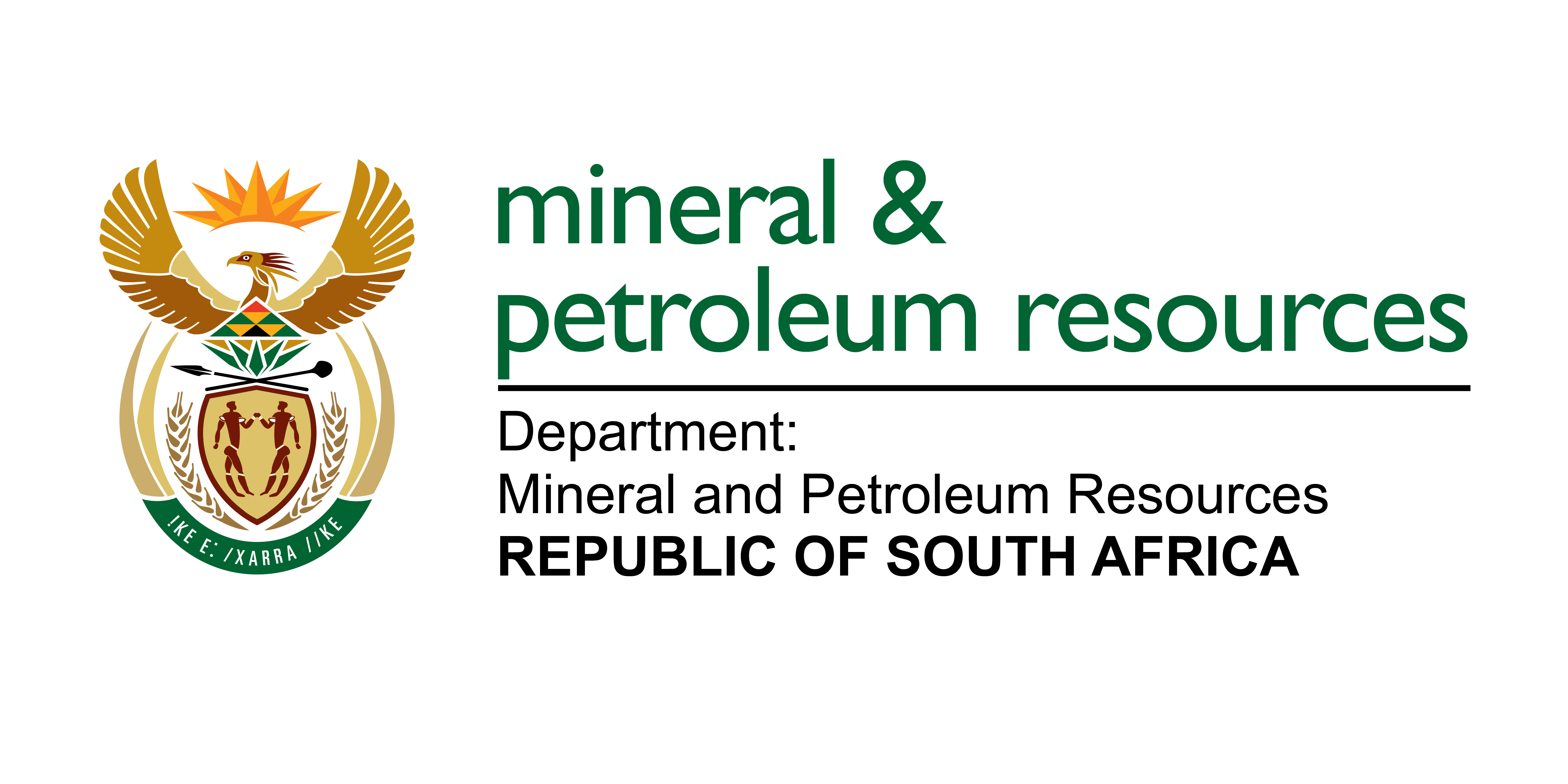-Logo_CMYK_1.jpg?width=1000&height=500&ext=.jpg)
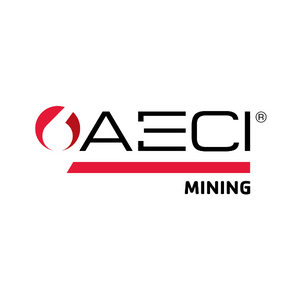



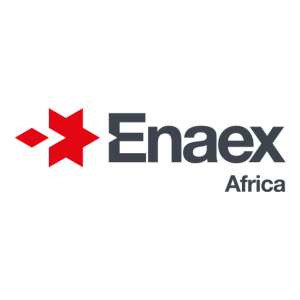


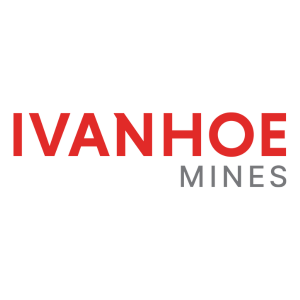
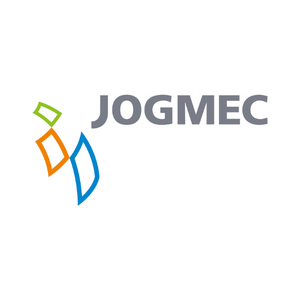


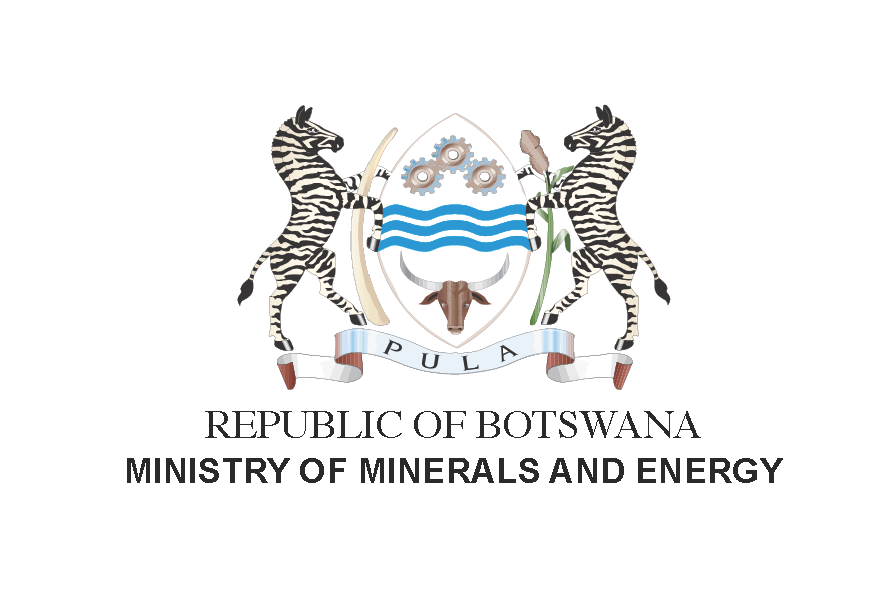.png?width=300&height=208&ext=.png)
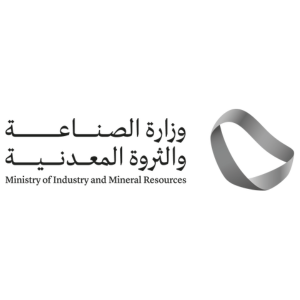
_mi25-weblogo.png?ext=.png)
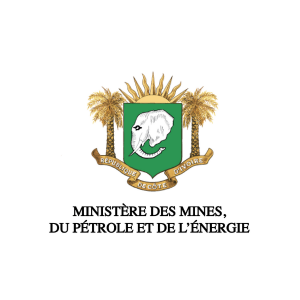
_1.png?ext=.png)






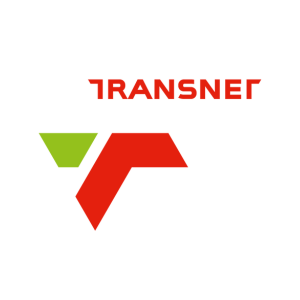












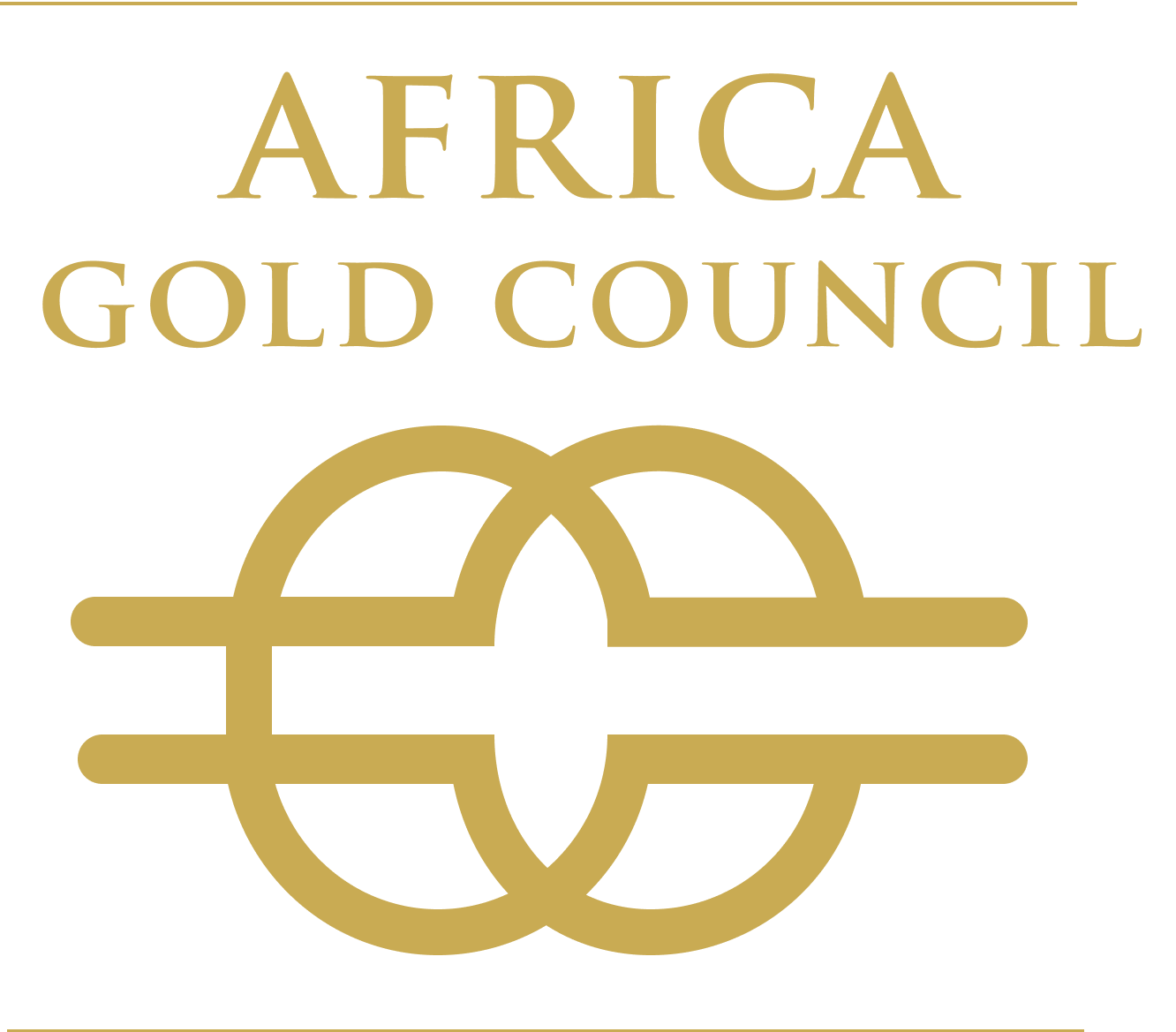

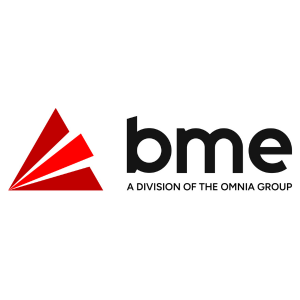













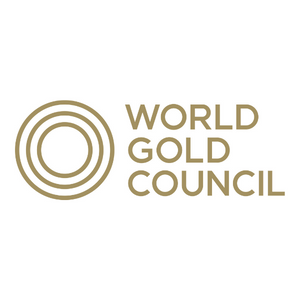
_logo.png?ext=.png)

_mi25-weblogo.png?ext=.png)




